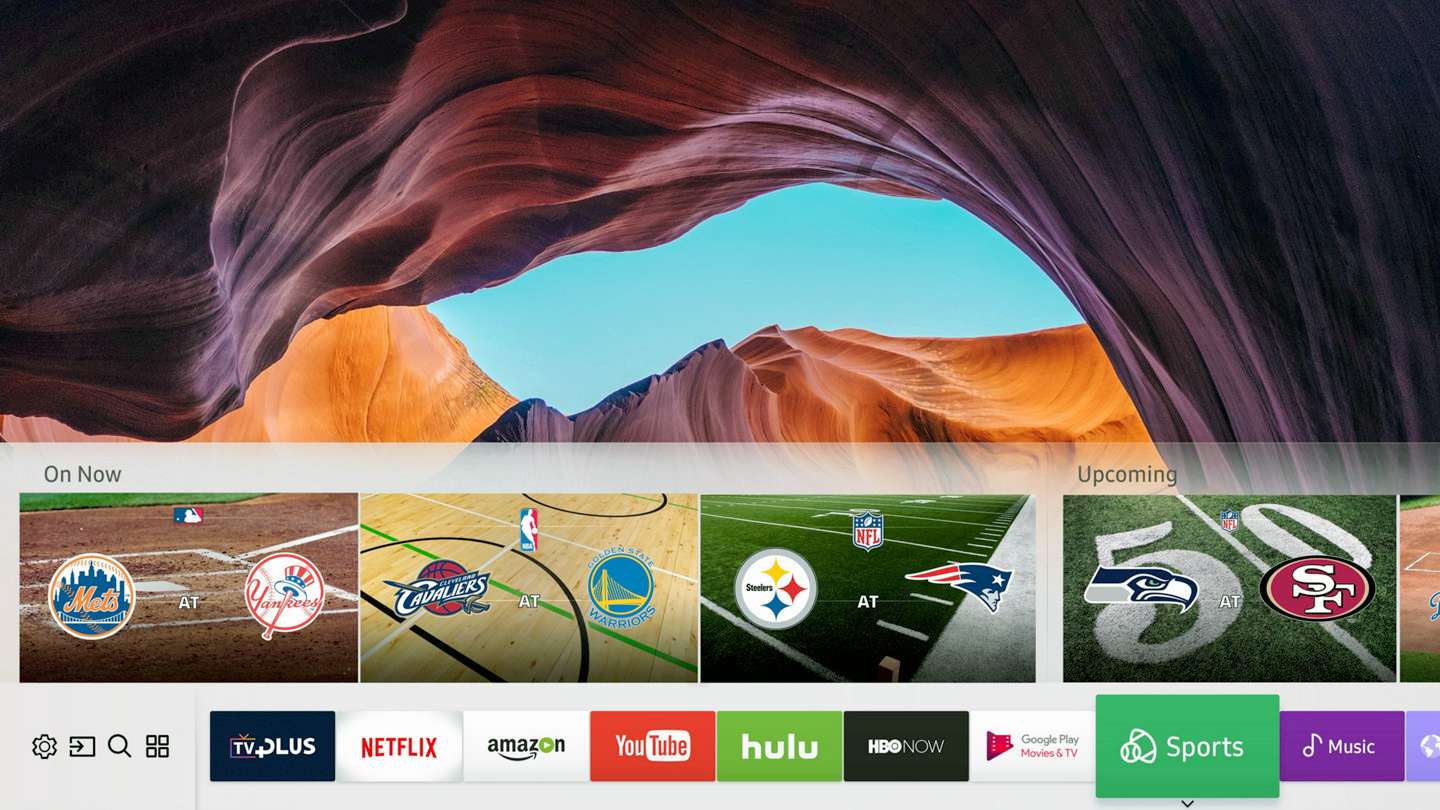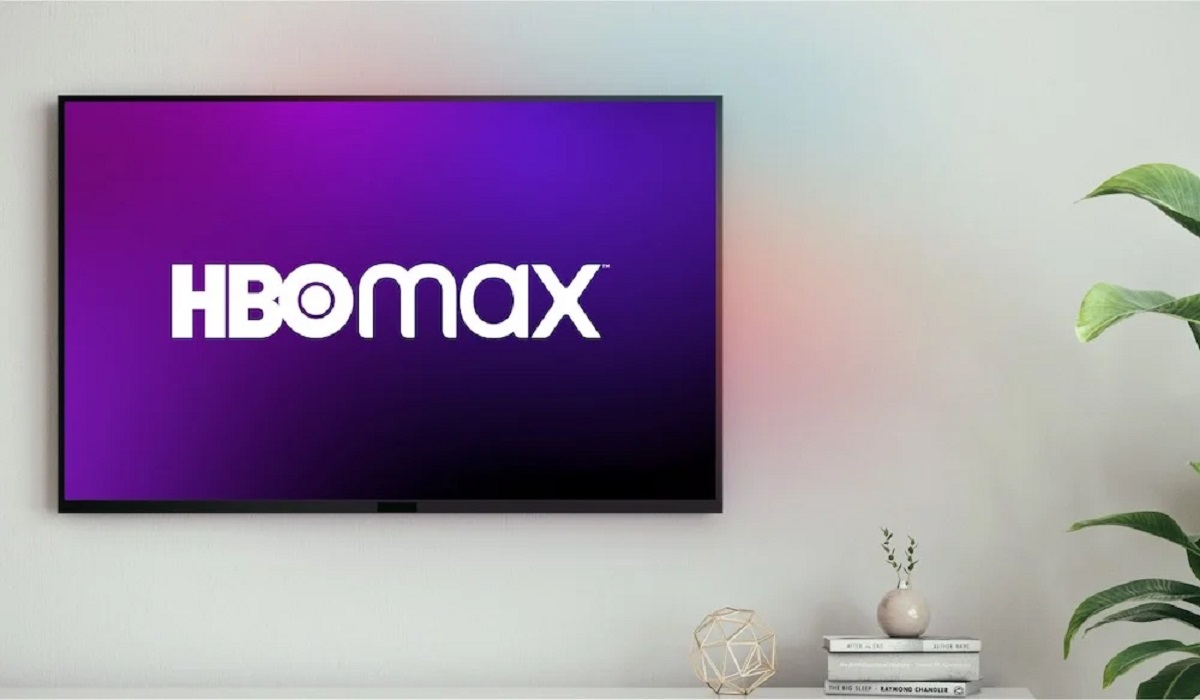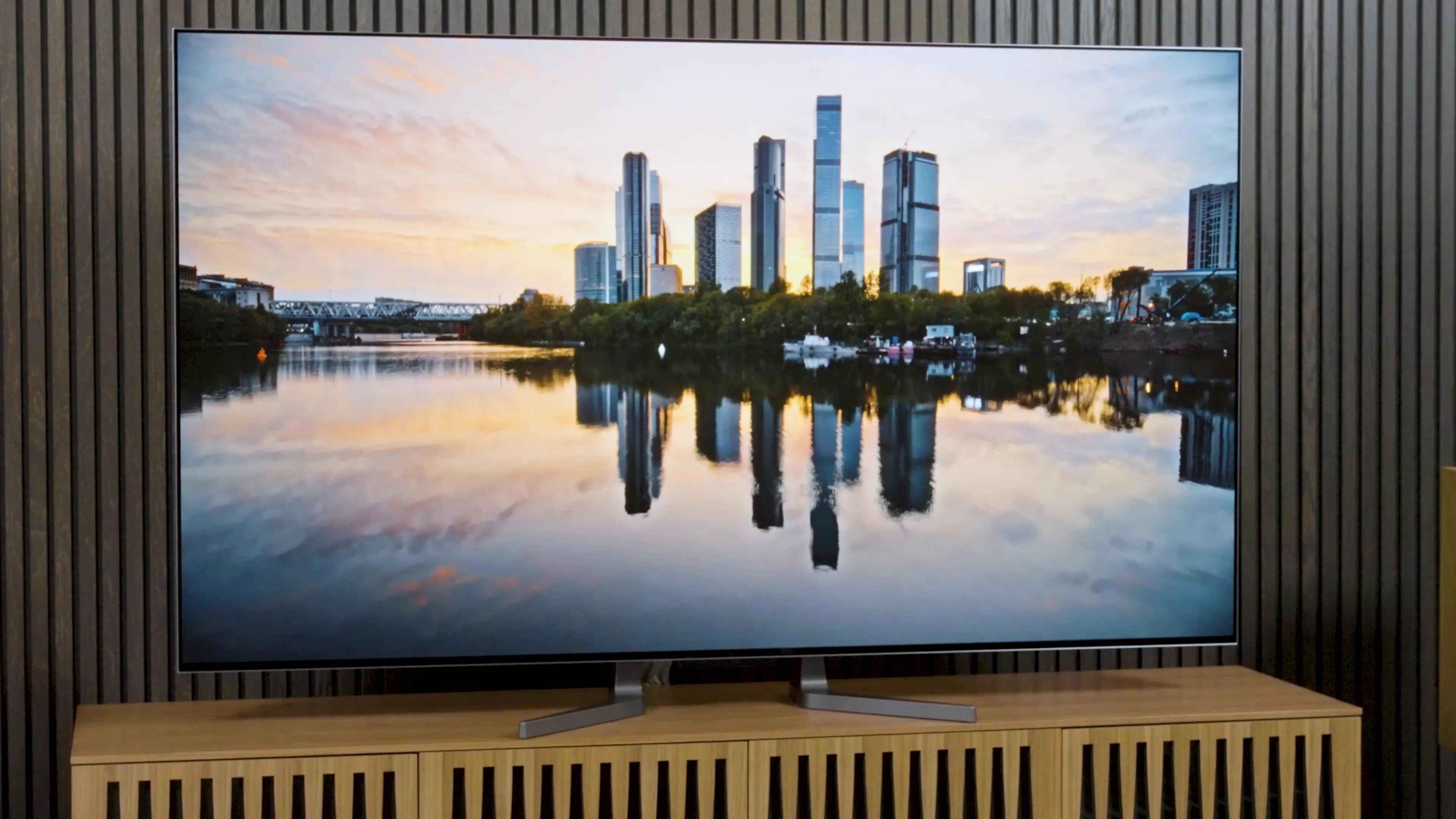Introduction
With the ever-evolving technology landscape, televisions have become smarter and more advanced than ever before. Samsung, one of the leading brands in the electronic industry, has introduced its line of Smart TVs, offering a whole new level of entertainment. These Smart TVs come equipped with various features and functionalities, allowing users to seamlessly access their favorite streaming services, browse the internet, and even connect with other smart devices.
But have you ever wondered what operating system powers your Samsung Smart TV? Just like computers and smartphones, Smart TVs also rely on operating systems to control and manage their functions. Understanding the operating system of your Samsung Smart TV is essential, as it determines the user interface, app compatibility, and overall performance of the device.
In this article, we will delve into the world of Samsung Smart TV operating systems. We will explore the different operating systems available, such as Tizen, WebOS, and Android TV, providing you with insights to help you make an informed decision when choosing a Samsung Smart TV.
So, if you’re ready to unlock the potential of your Samsung Smart TV and discover the wonders of its operating system, let’s dive in!
Overview of Samsung Smart TVs
Samsung Smart TVs are a range of cutting-edge televisions that combine traditional TV functionalities with advanced features and smart capabilities. These TVs offer a seamless integration of entertainment, connectivity, and convenience, revolutionizing the way we experience television.
One of the key highlights of Samsung Smart TVs is their stunning display quality. With advancements in display technology, such as 4K UHD and QLED, Samsung Smart TVs deliver incredibly sharp and vibrant images, bringing your favorite movies, shows, and games to life with breathtaking clarity.
Beyond the impressive visuals, Samsung Smart TVs provide an immersive audio experience. Whether you’re a fan of explosive action scenes or soul-stirring musical performances, the built-in speakers or the option to connect external sound systems ensure that you enjoy every minute of the content you’re watching.
But what sets Samsung Smart TVs apart is their smart functionality. These TVs come equipped with integrated Wi-Fi connectivity, allowing you to connect to the internet and access an array of online content. You can stream your favorite movies and TV shows from popular platforms like Netflix, Hulu, and Amazon Prime Video, or explore a wide range of apps, games, and music services through the Smart Hub.
Moreover, Samsung Smart TVs support screen mirroring, enabling you to mirror your smartphone, tablet, or laptop screen onto the TV. This feature comes in handy when you want to show photos, videos, presentations, or even play mobile games on the big screen.
Another aspect worth mentioning is the seamless integration of voice control. Many Samsung Smart TVs are compatible with virtual assistants like Bixby, Amazon Alexa, and Google Assistant, allowing you to control your TV using simple voice commands. Whether you want to change the channel, adjust the volume, or search for content, voice control adds an extra layer of convenience and ease.
Overall, Samsung Smart TVs offer an all-in-one solution for your entertainment needs. From superior picture and sound quality to smart features and connectivity options, these TVs provide a complete package that keeps you entertained and connected in the comfort of your own home.
Understanding Operating Systems
An operating system is a crucial component of any electronic device, including Samsung Smart TVs. It acts as the software platform that manages and controls all the hardware and software resources of the TV. In simple terms, the operating system provides the interface that allows users to interact with the TV and access its various features and applications.
Operating systems on Samsung Smart TVs are designed to be user-friendly and intuitive, ensuring that even those with limited technical knowledge can navigate through the TV’s functionalities effortlessly. These operating systems determine the look and feel of the user interface, the availability of apps and services, and the overall performance of the TV.
Within the realm of operating systems, there are different types and versions, each with its own unique features and characteristics. Manufacturers like Samsung often customize and optimize operating systems to suit the specific needs and requirements of their devices.
It is important to understand the operating system of your Samsung Smart TV, as it influences the overall user experience and determines the compatibility with various apps and services. Let’s explore the different operating systems used in Samsung Smart TVs and how they impact your television viewing experience.
Different Operating Systems on Samsung Smart TVs
Samsung Smart TVs utilize various operating systems, each offering its own set of features, app compatibility, and user interface. Let’s take a closer look at the three most popular operating systems used in Samsung Smart TVs:
Tizen Operating System:
Tizen is Samsung’s proprietary operating system specifically developed for their Smart TVs. It is known for its smooth and intuitive user interface, making it easy for users to navigate through menus, settings, and apps. Tizen offers a wide range of apps and services through the Samsung Smart Hub, including popular streaming platforms like Netflix, Hulu, and YouTube. The Tizen operating system also supports screen sharing and has built-in voice control capabilities, allowing users to control their TV using voice commands through the Samsung’s virtual assistant, Bixby.
WebOS Operating System:
WebOS, developed by LG, is another popular operating system found on certain models of Samsung Smart TVs. WebOS is lauded for its sleek and user-friendly interface, with a visually appealing layout and easy access to a variety of apps and services. WebOS offers a content-centric approach, providing users with personalized recommendations based on their viewing history and preferences. It also boasts an impressive lineup of streaming apps and supports a built-in voice assistant, allowing users to control their TV using voice commands.
Android TV Operating System:
Android TV is an operating system developed by Google and is used by many TV manufacturers, including Samsung. With Android TV, users can access a vast array of apps, games, and services through the Google Play Store. The familiar Android user interface allows for easy navigation and customization options. Android TV also supports Google Assistant, enabling users to control their TV using voice commands and integrate their TV with other smart devices in their home.
These different operating systems bring unique features and functionalities to Samsung Smart TVs. It’s important to consider your preferences and the availability of apps and services when choosing a Samsung Smart TV with a specific operating system.
Tizen Operating System
Tizen is the proprietary operating system developed by Samsung for their Smart TVs. It is designed to provide a seamless and user-friendly experience, with a range of features and functionalities that enhance the overall TV viewing experience.
One of the standout features of the Tizen operating system is its smooth and intuitive user interface. The interface is visually appealing and easy to navigate, making it simple for users to find their favorite apps, settings, and content. The organized layout and user-friendly menus ensure that users can quickly access the features they need without any hassle.
Tizen offers access to a wide range of apps and services through the Samsung Smart Hub. Users can enjoy popular streaming platforms like Netflix, Hulu, and YouTube, as well as a plethora of other apps and games. The app selection is constantly updated and expanded, ensuring that users have access to the latest content and entertainment options.
One of the key advantages of the Tizen operating system is its support for screen sharing. Users can easily mirror the screen of their smartphones, tablets, or laptops onto the TV, allowing them to share photos, videos, or presentations on the big screen. This feature adds convenience and versatility to the TV viewing experience, especially for those who enjoy sharing media with friends and family.
Another noteworthy feature of the Tizen operating system is the inclusion of voice control capabilities. Samsung Smart TVs with Tizen support the use of voice commands through the built-in virtual assistant, Bixby. This allows users to control their TV using voice commands, making tasks like changing channels, adjusting volume, or searching for content more convenient and hands-free.
Tizen also focuses on providing a secure and reliable environment for users. It comes equipped with various security features that protect against malware and unauthorized access. Samsung regularly updates the Tizen operating system with security patches and upgrades, ensuring that users have a safe and reliable Smart TV experience.
In summary, the Tizen operating system found on Samsung Smart TVs offers a smooth and intuitive user interface, a wide selection of apps and services through the Samsung Smart Hub, screen sharing capabilities, and voice control functionality. With its emphasis on user experience and security, Tizen enhances the overall Smart TV experience and ensures that users can enjoy their favorite content with ease.
WebOS Operating System
WebOS is an operating system developed by LG Electronics that is used in select models of Samsung Smart TVs. It is renowned for its sleek and user-friendly interface, providing an enjoyable and intuitive TV viewing experience.
One of the key features of the WebOS operating system is its visually appealing and organized layout. The interface is designed to be easy to navigate, with a home screen that provides quick access to your favorite apps and content. The user interface prioritizes simplicity and usability, making it simple for users to find and enjoy their preferred entertainment options.
WebOS takes a content-centric approach, providing personalized recommendations based on your viewing history and preferences. The operating system analyzes your watching habits and suggests content that you might enjoy, saving you time and effort in searching for new shows or movies to watch.
When it comes to app availability, WebOS offers a wide range of streaming platforms, apps, and services. Users can access popular streaming services like Netflix, Amazon Prime Video, and Disney+. Additionally, WebOS supports a variety of other apps, including gaming apps, news apps, and social media apps, giving users a diverse selection of entertainment options.
WebOS also features built-in voice control capabilities. With the integration of intelligent voice assistants like LG’s ThinQ or Amazon Alexa, users can control their Smart TVs using voice commands. From changing channels to adjusting volume or searching for content, voice control simplifies the user experience and offers a convenient hands-free option for interacting with the TV.
Furthermore, WebOS allows users to connect their smartphones or other devices to their Samsung Smart TVs seamlessly. This enables screen mirroring, allowing you to share photos, videos, presentations, or even play mobile games on the big screen. This feature enhances the overall versatility and flexibility of the TV, offering a more engaging and immersive experience.
WebOS also prioritizes security, with regular software updates and security patches to protect against potential vulnerabilities. The operating system ensures a safe and secure environment for users, giving them peace of mind while enjoying their Smart TV experience.
In summary, WebOS operating system found on select Samsung Smart TVs offers a visually appealing and user-friendly interface, personalized recommendations, a range of streaming apps and services, built-in voice control capabilities, screen mirroring functionality, and a strong emphasis on security. These features contribute to an enhanced Smart TV experience, providing users with convenient and enjoyable entertainment options.
Android TV Operating System
Android TV is an operating system developed by Google that is used by many TV manufacturers, including Samsung. It offers a host of features and functionalities that enhance the Smart TV experience, providing users with a wide range of entertainment options.
One of the key advantages of the Android TV operating system is its vast app ecosystem. Users can access a plethora of apps, games, and services through the Google Play Store, making it easy to find and install their favorite streaming platforms, such as Netflix, Hulu, and YouTube, along with various other apps for news, sports, gaming, and more.
The user interface of Android TV is designed to be familiar and easy to navigate, with a customizable home screen that allows users to organize their preferred apps and content. Android TV supports features like content recommendations and personalized suggestions, ensuring that users can quickly find new content based on their interests and viewing habits.
Another advantage of Android TV is its integration with Google Assistant, which provides built-in voice control capabilities. Users can simply use their voice to control their TV, search for content, adjust settings, and even control smart home devices that are connected to the same network. Google Assistant offers a hands-free and convenient solution for interacting with the TV.
With Android TV, users can also take advantage of the Chromecast built-in feature, which enables seamless screen mirroring from compatible devices. Whether you want to share photos, videos, or presentations, or even play mobile games on the big screen, Chromecast built-in makes it easy to cast content from your smartphone, tablet, or laptop to your Samsung Smart TV.
Android TV offers regular software updates, ensuring that users have access to the latest features and security patches. This commitment to updates means that your Samsung Smart TV will continue to improve and remain up-to-date with the latest advancements in the Android TV operating system.
Additionally, Android TV allows for seamless integration with other smart devices in your home, creating a connected ecosystem. You can control your TV using compatible smartphones, tablets, or even smartwatches, providing a convenient and integrated experience across multiple devices.
In summary, the Android TV operating system found on certain Samsung Smart TVs offers a vast app ecosystem, customizable user interface, personalized recommendations, built-in voice control with Google Assistant, Chromecast built-in for easy screen mirroring, regular software updates, and integration with other smart devices. These features enhance the versatility and interconnectivity of your Smart TV, providing a seamless and immersive entertainment experience.
Factors to Consider when Choosing a Samsung Smart TV Operating System
When selecting a Samsung Smart TV, the choice of operating system plays a significant role in determining the overall user experience and functionality. Here are some important factors to consider when choosing a Samsung Smart TV operating system:
App Availability:
One vital factor to consider is the availability of apps and services on the operating system. Different operating systems may have varying app selections, with some offering a wider range of popular streaming services, gaming apps, news apps, and more. It is important to ensure that the operating system of your Samsung Smart TV supports the apps and services that you frequently use or plan to use in the future.
User Interface:
The user interface (UI) is another crucial aspect to consider. The UI determines how easily you can navigate through the TV’s features, settings, and apps. Look for an operating system with a user-friendly and intuitive interface that allows for smooth and effortless navigation. A well-designed UI enhances the overall Smart TV experience and makes it more enjoyable to use on a daily basis.
Voice Control:
Consider whether the operating system supports voice control and the availability of a built-in virtual assistant. Voice control allows you to operate your Smart TV using simple voice commands, providing convenience and ease of use. Features like voice search, volume control, and app selection using voice commands can greatly enhance the user experience and make interacting with your TV more hands-free.
Screen Sharing:
Screen sharing capabilities enable you to mirror the screen of your smartphone, tablet, or laptop onto your Samsung Smart TV. This feature is useful when you want to share photos, videos, presentations, or play mobile games on a larger screen. Check if the operating system supports screen mirroring and the ease of connecting your devices to the TV.
Security and Updates:
Consider the level of security provided by the operating system and how regularly it receives software updates. A secure operating system with regular updates ensures that your Samsung Smart TV remains protected against potential threats and vulnerabilities. It also guarantees access to the latest features, improvements, and bug fixes, ensuring a more stable and reliable TV experience.
By considering these factors, you can make an informed decision when choosing a Samsung Smart TV operating system that best aligns with your preferences, needs, and desired functionality. Remember to weigh the app availability, user interface, voice control options, screen sharing capabilities, and the level of security and updates provided by the operating system to enhance your overall Smart TV experience.
Conclusion
Choosing the right operating system for your Samsung Smart TV is crucial in ensuring an optimal viewing experience and accessing the features and apps that matter to you. Each operating system, whether it’s Tizen, WebOS, or Android TV, offers unique features and functionalities that cater to different preferences.
The Tizen operating system provides a smooth and intuitive user interface, extensive app selection, screen sharing capabilities, and voice control through Bixby. It is a suitable choice for users who prioritize a user-friendly interface and a wide range of available apps and services.
WebOS, developed by LG, offers a visually appealing interface, personalized content recommendations, an array of streaming apps, convenient voice control, and seamless screen mirroring. For users who value a visually appealing UI and personalized content suggestions, WebOS can be a compelling choice.
Android TV, developed by Google, boasts a vast app ecosystem, customizable interface, voice control with Google Assistant, Chromecast built-in, regular software updates, and integration with other smart devices. If you prefer a wide range of app choices, seamless integration with Google services, and the flexibility of connecting with other smart devices, Android TV might be the right choice for you.
When making your decision, consider factors such as app availability, user interface, voice control options, screen sharing capabilities, and the security and updates provided by the operating system. By weighing these factors, you can select the operating system that best meets your needs and enhances your overall Smart TV experience.
Ultimately, whether you choose Tizen, WebOS, or Android TV, a Samsung Smart TV equipped with any of these operating systems will offer a range of entertainment options, convenient features, and stunning visuals, bringing the world of entertainment right into your living room.

























